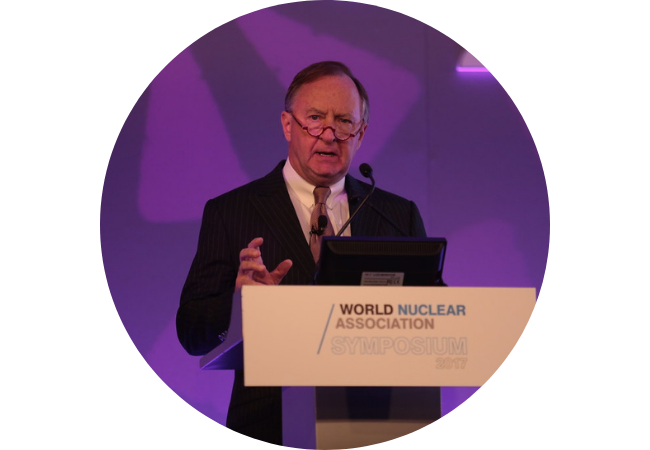Nuclear Fuel Cycle: Conversion
Fletcher Newton has worked with all four of the world’s commercial conversion facilities and has a thorough understanding of the limitations and unique features of each of the world’s conversion facilities.. His understanding of the complexities and challenges surrounding the conversion of U3O8 into uranium hexafluoride (UF6), along with a proven track record navigating market fluctuations, such as the post-Fukushima price crash and the recent surge in conversion prices, makes him uniquely qualified to help clients understand the critical role conversion now plays in the nuclear fuel market, after decades of being the cheapest and least appreciated step in nuclear fuel production. In particular because of the continued shortage of UF 6 feed returns to Russia, conversion is now certain to play an even larger role in the overall nuclear market. Fletcher’s expertise and understanding of how conversion now fits into the current market ensures that clients will receive a timely and cost-effective understanding of how conversion services will continue to affect the global dynamics of the nuclear fuel market.

Conversion
Before it can be enriched, natural uranium in the solid form of U3O8 must be “converted” into uranium hexafluoride (UF6), which can be a gas or liquid depending on temperature and pressure. The price of this conversion process is calculated based on the production of one kilogram of uranium in the form of UF6. Because of the molecular weight of oxygen and fluorine, it takes 2.6 pounds of U3O8 to produce one kilogram of uranium in the form of UF6.
Conversion services are bought, sold, and traded like any other commodity, and like U3O8, uranium hexafluoride is entirely fungible. While there are dozens of mining companies producing uranium around the world, there are only four commercial enterprises in the world where U3O8 can be converted into UF6: one each in the US, Canada, France, and Russia. Almost all the output from these facilities is sold under long-term contracts, and historically the price for conversion services has been extremely cheap, usually less than $10 for each kg of UF6. After the Fukushima earthquake in 2012, conversion prices dropped considerably as Japan shut down its entire fleet of 54 reactors and Germany immediately shut down eight of its 17 reactors, with the remaining nine scheduled for closure by 2020. Since the owners of the Japanese and German reactors that were shut down had already purchased their conversion services for the next several years, the market was now flooded with excess UF6. Conversion prices dropped accordingly, and by November 2017 had bottomed out at $4/kg U as UF6. Since no conversion facility could make money at this price, Converdyn, which is the sole conversion facility in the United States, shut down its plant in Metropolis, Illinois in efforts to reduce the over-supply of conversion services until the price recovered.
The Converdyn plant remained shut down for more than six years and was brought back online in 2023 when it appeared that the excess inventory of conversion services had been used up. By this time, however, Russia’s invasion of Ukraine and the resulting sanctions in the US, EU, and UK had started to prevent Russia from delivering its conversion services contained in LEU into the market. This created an immediate shortage of conversion services outside of Russia, and prices rose dramatically. They have now spiked to an all-time high of $89 per kg as of February 15, 2024.
Fletcher routinely works with all four of the world’s conversion facilities, who play a vital role in ensuring timely production of UF6 and its timely delivery to enrichment facilities.

Fletcher's expertise in the uranium conversion process is unparalleled. With a deep understanding of the global conversion market, including navigating price fluctuations and supply shortages, he provides invaluable strategic insights. His strong relationships with the world’s leading conversion facilities ensure clients receive timely and cost-effective services. Fletcher’s guidance is essential for anyone looking to optimize their operations in the nuclear fuel cycle, making him the go-to expert for conversion-related challenges.
Inquiries
"*" indicates required fields